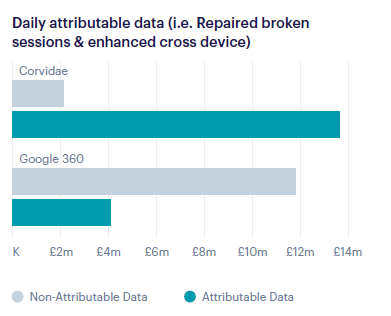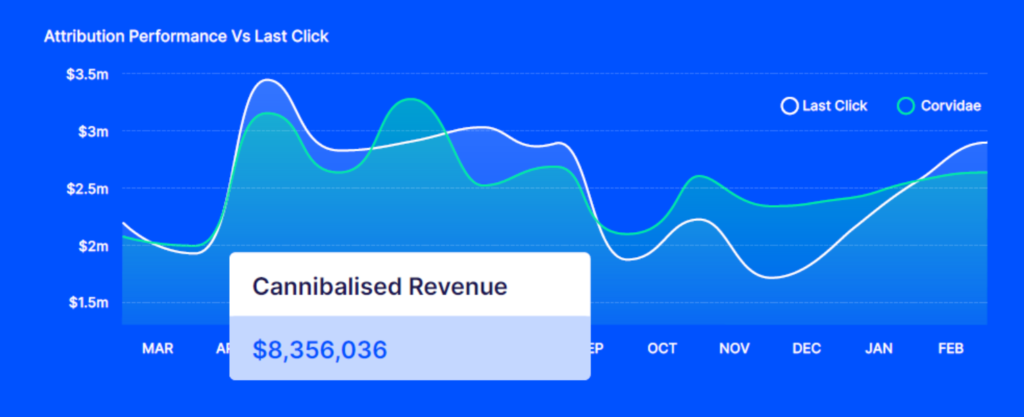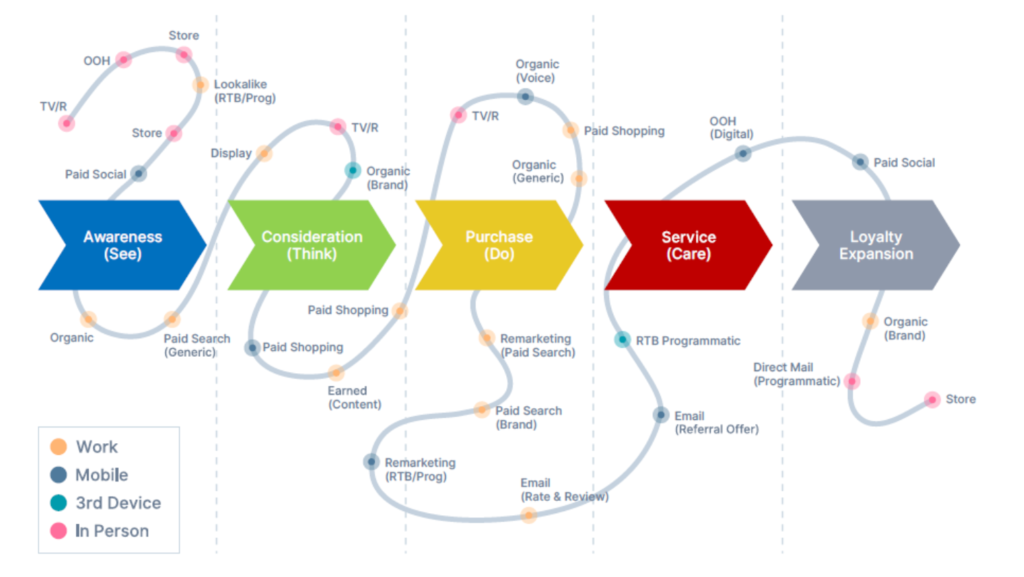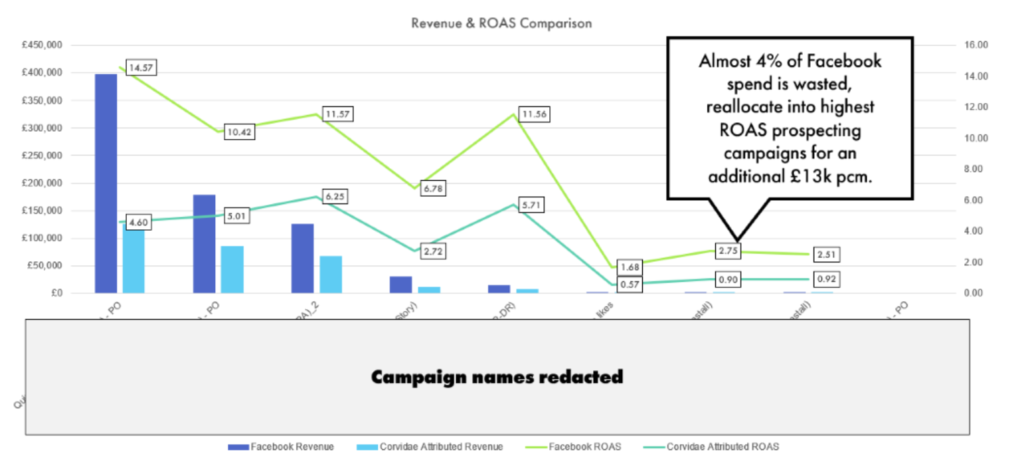5 Tips for Selecting the Right Attribution Solution in Retail

Getting attribution right for retail marketers is a challenge.
The retail buyer journey is now very often a complex one involving a wide range of touchpoints both on and offline, using multiple devices and involving a wide range of media options that very often rely heavily on their own measurement data.
So how do you ensure that you select the right attribution solution in retail? We believe there are 5 key areas of focus as follows:
Get the quality of your data input right upfront
Much of the focus in attribution inevitably veers towards selection of an attribution model. But if the quality of your underlying data is poor, then it follows that the quality of your attribution will also be poor.
In fact, the quality of your retail marketing data is foundational.
95% of all marketing attribution is done using Google Analytics (GA 360) or Adobe Analytics. And a host of other tools – including SaaS based ones – have been developed by other companies and the bulk of these simply ingest Google or Adobe data to perform their own special brand of attribution magic.

The problem is that this raw data is up to 80% inaccurate, predicated on collecting pixel and cookie session data that is a function of the browser, not an individual retail customer. And very few analytics tools are capable of ‘stitching’ these sessions together to give a true picture of the person behind the browser – even before you begin to consider integrating data from offline media and social channels.
Poor quality data is hurting your attribution. Here’s why…
The answer lies in selecting an attribution solution in retail that is capable of breaking down and rebuilding raw clickstream data using Machine Learning and AI techniques.
This is the approach that our Corvidae platform takes. In this example– for a leading UK food and clothing retailer – we were able to take existing Google 360 data and effectively rebuild it. And adjust the level of attributable spend from £4.1m to £13.6m in the process.
Ask some difficult questions of your reporting dashboards
As reported in emarketer:
“Just because a dashboard gives you a number, it doesn’t mean that the number actually means anything.”
Duncan Blair, Director of Marketing at Article (furniture retailer)
A combination of factors from the impact of the pandemic to rapid changes in the way that people research, consider and purchase products mean that retail marketing spend decisions and budgets are under greater pressure than ever before.
Beware of fancy bells and whistles. And fancy dashboards vs what’s really important to drive effective insight and marketing ROI.
Most retail marketing departments are drowning in enough unconnected data to sink them completely. And there really isn’t any business case for adding more “so what” type data – without actionable insight – into the mix.

So, as you consider attribution solutions – think carefully about how you can potentially use the data you are seeing to action improvements.
Track the entire retail customer journey – on and offline

The customer buying journey in retail is complex these days. Involving a wide range of devices, media touchpoints and brand interactions that happen both on and offline. And your approach to attribution must reflect that.
Each and every interaction has an impact.
So, ensure you can correctly value top of funnel content, including brand and non-converting activity and include it in your analysis. This is only really possible when your attribution solution in retail is able to leverage sophisticated modelling, Machine Learning and AI techniques that enable you to join together journeys that were previously unidentifiable – to create a full 360 degree customer view that is capable of driving your marketing decisions.
How can I get more customers with less budget? Read our tips…
Look for deep dive analysis capability that impacts ROI
With views up and down and across the customer journey at channel, campaign, creative and individual visit level.
It is only by unravelling the complexity of the wide variety of touchpoints on individual customer journeys – and accurately attributing the correct level of impact to each – that you can make the direct link between marketing spend and revenue.
And work at both strategic and tactical levels to improve your marketing programmes from the top down and bottom up, to drive ROI performance improvement across your marketing mix.
Harness the power of predictive analytics to automate and drive conversion
Finally, you want an attribution solution that enables you to use the full extent of data – collected from right across the customer journey – to improve the performance of your customer acquisition activity.
One that can harness the power of Machine Learning and AI to accurately predict propensity to convert and increase ROI by reducing the waste in your campaigns through better targeting, retargeting and significant improvements in CPA and revenue performance.

The example above is from a leading clothes retailer who used the Corvidae platform to effectively rebuild their existing data and identify that almost 4% of Facebook spend was effectively being wasted. This allowed them to realise that by reallocating that wasted spend into the highest performing campaigns an additional £13k per month in revenues could be generated.
How can Machine Learning enhance your digital marketing strategies? Read our blog.
Talk to us about Corvidae
Corvidae is QueryClick’s SaaS marketing attribution platform and the only attribution solution which completely rebuilds your retail marketing data, reaching beyond Google 360 and Adobe Analytics.
It reveals up to 334% more data for attribution and is providing game changing accuracy and predictive performance for multiple retail businesses.
Discover Corvidae
Request a demo today and discover how Corvidae can transform your attribution.
Own your marketing data & simplify your tech stack.
Have you read?
I have worked in SEO for 12+ years and I’ve seen the landscape shift a dozen times over. But the rollout of generative search engines (GSEs) feels like the biggest...
As you will have likely seen, last week Google released the March 2024 Core Algorithm Update. With it, comes a host of changes aiming to improve the quality of ranking...
After a year of seemingly constant Google core updates and the increasingly widespread usage of AI, the SEO landscape is changing more quickly than ever. With this rapid pace of...



